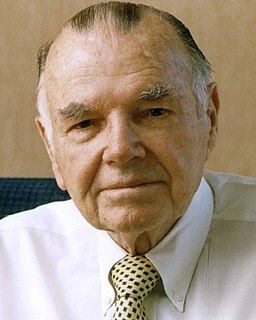A Quote by Max de Pree
Innovation is the lifeblood of an organization. Knowing how to lead and work with creative people requires knowledge and action that often goes against the typical organizational structure. Protect unusual people from bureaucracy and legalism typical of organizations.
Related Quotes
Innovation is a subset of creativity. Innovation often deals with product launches and is often relegated to the C-suite or to heads of R&D departments. Innovation requires creativity, but creativity is something that is much more broad. It applies to people at all levels of an organization. Today, we all are responsible for delivering "everyday creativity". Small creative acts that add up to big things.



































